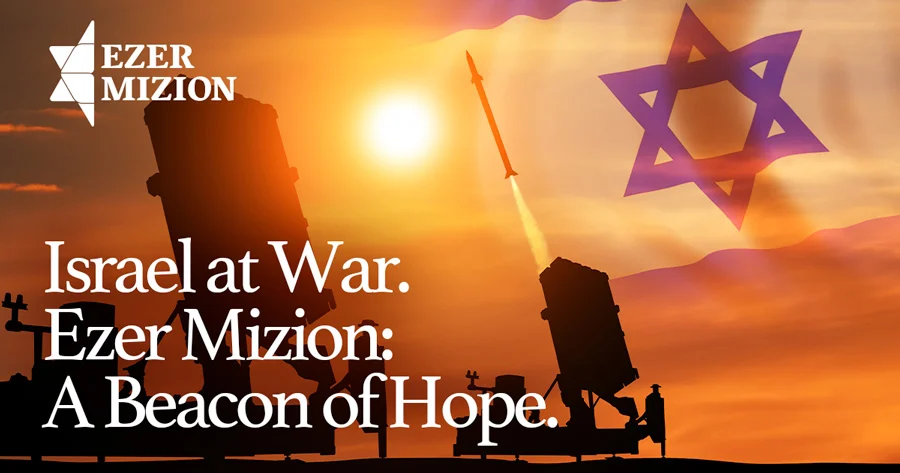
Everyone at the Ezer Mizion Summer Retreat for Cancer Patients and their Families has a story. Last week we met a participant whose husband divorced her when she was diagnosed. There was no husband to support her as she tried to raise her family, all the while undergoing a battle on two fronts, both cancer and the war.
Mali, however, is married but also without any support. Her husband simply fell apart. The arguments between them were continuous and she was considering untying the knot. Instead, she suggested he move back into their lovely home in Sderot and make it a hostel for soldiers. “Until now, he was always there for me, so now, when he is crashing, I need to be there for him. He kept busy with the soldiers, made them barbecues in our house, went to work. Meanwhile, we gradually learned to speak to each other again.”
Mali, mother of three, had discovered two years ago that she had cancer. The war actually caught her when her hopes were high – after she’d concluded a round of chemotherapy and was a week before the end of a series of radiation treatments. “Even when they told me I was sick, I wasn’t as frightened as I was on October 7th,” she says.
On October 7th, she was at the peak of her physical weakness, but she understood that she needed to gather strength in order to bolster the family. “When you near the end of the treatments, it’s most painful,” she recalls. She had serious burns from the radiation, but for the sake of her three children, she displayed restraint. “I decided that nothing hurts me, that I’m not thinking about myself, that I want to radiate calmness to my children. As we trembled in the safe room, I told them – no phone calls, no television, no music. We are maintaining absolute silence. I explained to them that the security situation is frightening for us, too, but we’ll get through it together.”
For three days, the family remained in the Mamad (fortified room), in paralyzing fear. When they were rescued by security forces, the horrific sights were too much to take: Burned homes, shattered windows, blood that wasn’t yet dry. “We went out to the car as we were – without extra clothing, without my wig, even without my medicines. We simply fled,” she recalls. “I said that I’m leaving the house to whoever wants it: soldiers, policemen, rescue squads – let them use the house freely to refresh themselves. Later on, our house really did become a refreshment station. Every month, a different battalion used it.”
At the Ezer Mizion retreat, she says, she learned to let go. Her husband needed to go to his job after the first two days, but she remained there. “From my point or view, the retreat produces strength. Afterwards, I take that strength to my children and into my life. The retreat restored my confidence that there is a good world out there, a beautiful life. And if I don’t want to miss it, I have to fight for it. At the retreat, I received the tools I need for the battle and the power to use them.”
